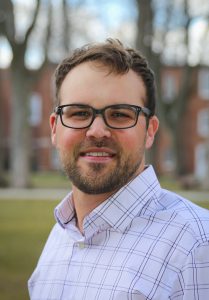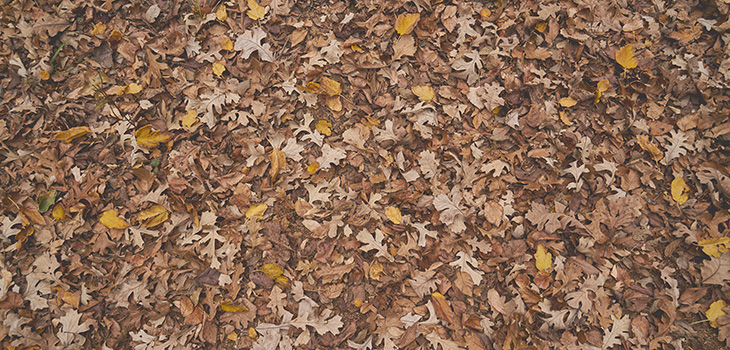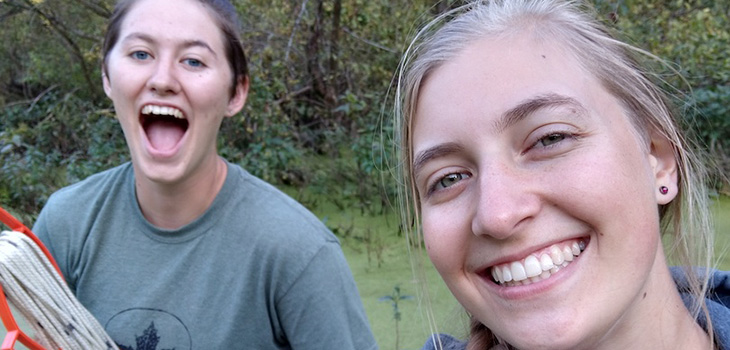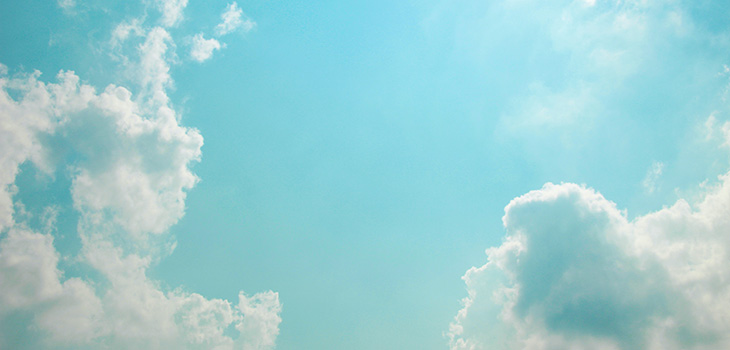“Definitely working with undergraduate and graduate students, especially because of some of the rich experiences that we would do, being out on the land and water for extended periods of time. These are things that people don’t have access to unless they come to a place like Merry Lea — things like foraging or butchering a deer with students and the deeper conversations those activities tend to bring up.
“The fact that I was able to create those experiences brought me a lot of joy, including hearing from students that saw a different perspective and the nature of our conversations around it. The conversations related to overall human natural history, food systems in society, what it means to live a meaningful life in the context of your diet, and what it means to respond to place and how we live.”
How did your seven years of service to Merry Lea and Goshen College help shape your understandings of environmental education or sustainability?
“I think my perspective on how interconnections happen across environmental education really broadened. I got into renewable energy systems, transportation systems, food systems, social justice — all of these aspects that intersect with environmental education. I got to do a lot of reading and have conversations with so many different people I wouldn’t have met otherwise.
“A lot of the experiences I had before coming to Merry Lea were based in the conservation movement: the nature center-y version of sustainability and environmentalism, which further separates humans from nature. Through Merry Lea, I gained experiences with church communities, in urban places, and across different socioeconomic dynamics, which made it more complete. I got to look a lot more closely at human systems and took on a more holistic perspective. Education strategies and [SLS] field trips can really change if you have more openness. A nuclear power facility is equally as part of nature as an oak tree. They’re not in a different sphere of existence, we’re all in the same one and have to figure out what that means.”
What do you hope the students you’ve taught and worked with have taken away?
“The first thing I hope that they take away is more confidence in themselves, who they are and who they’re becoming.
“One of the things I’ve grown in these last seven years is how to help students grow and how to teach in the context of leadership. I used different reflection methods that help students get a stronger grasp on ‘this is where I come from’ and ‘this is why I innately value these things.’ Having more awareness of who we are helps us to lead from within, not from someone else’s leadership model: the best we can be comes from who we already are. I hope that students will be more conscious of what they have to offer, how they want to grow and who they want to be.
“For students in the SLS and MAEE programs, I hope that they have grown in confidence and that they use it to try for growth opportunities that take them into new possibilities.
“Another thing I hope the students have taken away is a fresh perspective on their own relationship with place and how to root into places, wherever they are, and just pay attention. And that they move out of that curiosity and wonder.”
What projects are you most proud of during your time at Merry Lea?
“I wrote a book while I was here! That was really difficult to do, but I like how it turned out. More than that, I appreciate the relationships made through that process.
“The thing that means the most to me is looking around and seeing the students that I worked with in places that are totally ‘them.’ Knowing that their interests were catalyzed here — through the work of our team and others — and just having a hand in it. That’s what I’m most proud of.”
What do you hope for the future of Merry Lea?
“I hope that Merry Lea continues to be a place where local people learn how to love, care for and pay attention to the place. I hope that Merry Lea forms a lot of connections with smaller communities of naturalists, farmers and all sorts of different people who want to stand up for the biodiverse life that is here.”
What adventure is next for you?
“I will direct the graduate program at the Teton Science Schools (TSS). That’s the program I did to start graduate school and it was the place that I found this career trajectory [in environmental education].
“It’s an honor [to return]. I have a deep relationship with that place, the Greater Yellowstone Ecosystem. One of my jobs will be to lead a re-visioning process: assessing where the program has been, its main objectives, who the alumni are, and what they valued about the program, and then make necessary adjustments to increase accessibility so participants from wider socioeconomic factors can participate. I’ll get to return to some things I love to teach about, like backcountry skills, being around dangerous wildlife, etc., which brings you out into a greater awareness and puts you in that state of humility when you’re out on the landscape.”
What have you learned these past seven years that you hope to bring to the Teton Science Schools?
“I hope to bring more contemplative practices as part of teaching and learning. This is one way to help people get out of their own skin and develop a more dimensional relationship with the places that they’re in. I look forward to working with local artists and industry leaders in Jackson Hole, similar to field trips in the SLS model of including human communities in place-based education.
“Seven years ago, I got here [to Merry Lea] and started reinventing myself, but then I realized I didn’t need to do that and came back to a more simple version of who I am and what I want to do. Now, my process is different. I assess what I already have, including who I already have in my life that can give good perspective. Our growth in life is less of a line and more of a spiral, a continuation. Here at Merry Lea, I’ve really appreciated having the space and autonomy to grow and learn how to challenge myself. That’s one of the things I valued about the culture here.”

 Joel Pontius joined the Merry Lea team in 2015 as director of PreK-12 environmental education, overseeing PreK-12 programming and the master’s students in their teaching practicum. In 2016, he became director of the
Joel Pontius joined the Merry Lea team in 2015 as director of PreK-12 environmental education, overseeing PreK-12 programming and the master’s students in their teaching practicum. In 2016, he became director of the 

